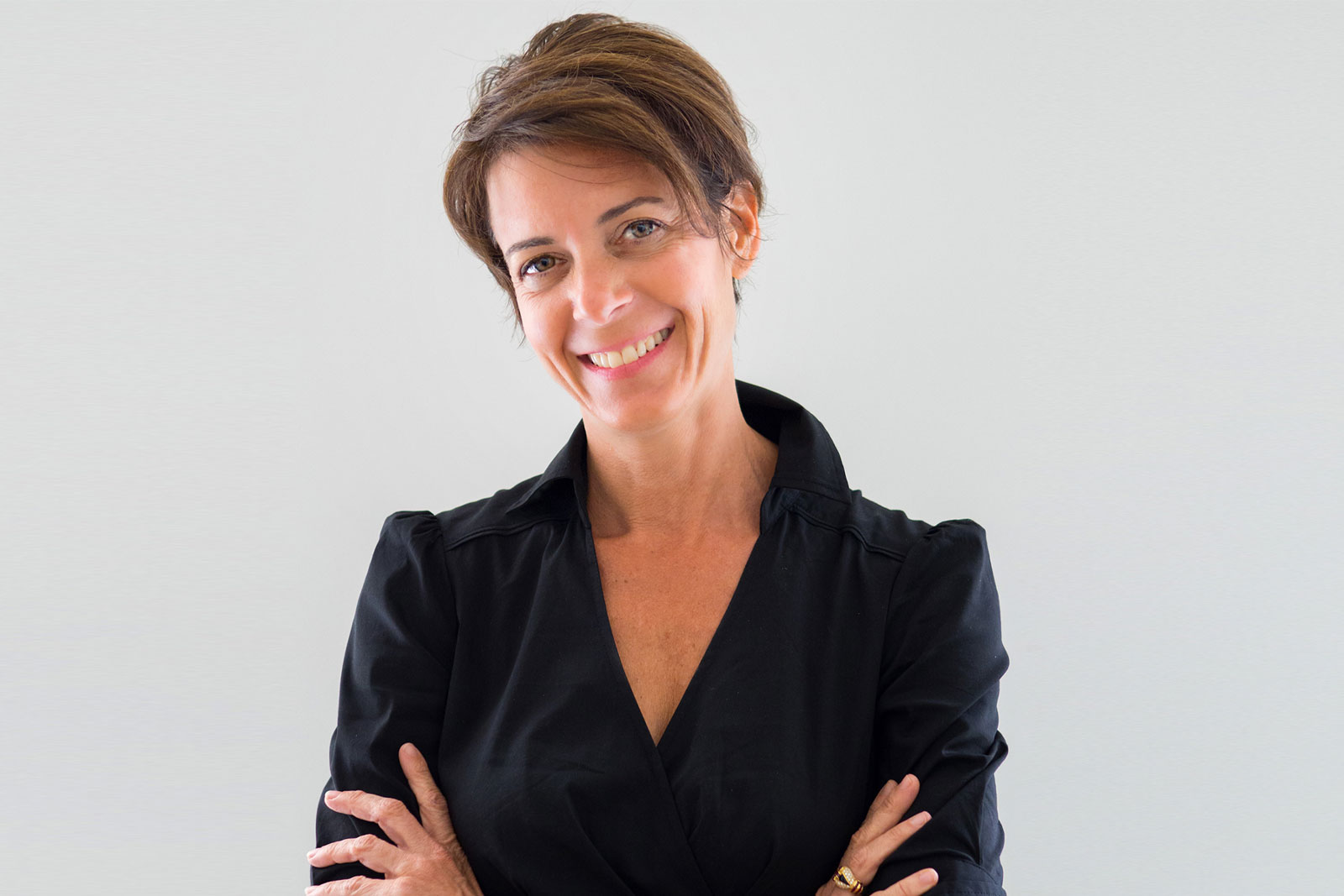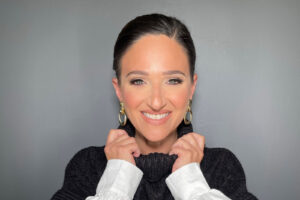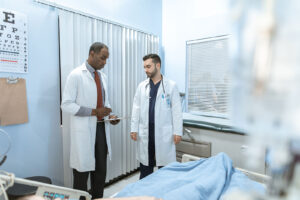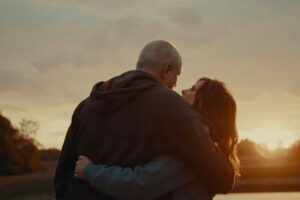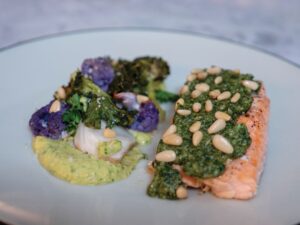“It’s not ‘Build it, they will come,’ it’s helping people to find places that they can explore whatever it is they want to explore, or just reset, relax, and be with their family and life,” says Julie Bach, founder of Wellness for Cancer, a 501 (c)(3) charity created to help facilitate better self-care and lifestyle choices for people with cancer.
In addition to working directly with people with cancer on their health and lifestyle choices, Wellness for Cancer travels across the globe to train cancer centers, oncology specialists, integrative medicine specialists, and other wellness professionals on evidence-based integrative medicine practices, including yoga, meditation, mindfulness, and massage. “This is not oncology massage, and this is not the cancer treatment,” Bach says about their work. “This is about wellness and helping people who happen to have side effects from their cancer treatment and their cancer.”
Wellness for Cancer began as a response to Bach’s experience acting as a caregiver for her mother, who was diagnosed with ovarian cancer shortly after her father passed away from cancer. Bach’s mother moved to Vail, Colorado, where Bach is based, to live with her daughter and undergo treatment.
“Unfortunately with ovarian cancer, there’s high depression, high isolation incidences,” Bach says. “My ex-husband was a chiropractor, and he said your mother needs to be touched.” Bach brought her to the spa she had recently purchased.
Soon, Bach’s mother began to make a turnaround, and in 2005, the local cancer center reached out to Bach to establish a cancer and spa outreach program. Although Bach’s mother later passed, she began to take on the work sparked by her mother’s beneficial treatment. Later, Bach received a grant from Susan G. Komen to bring spa services to patients in Aspen.
“I thought, well, I could just do this on a broader scale and send people to spaces,” Bach says. “And then I realized that not everybody was open, that I actually kind of had an anomaly here with Vail and with Aspen from a spa perspective.” Now, Bach travels around the world with her nonprofit, Wellness for Cancer, to teach self-care practices for individuals with cancer as well as train spas and wellness centers on how to create and facilitate specialized treatments for people with cancer.
When visiting facilities, Bach works with the spa, the general manager of the hotel, the food and beverage teams, and any other departments to flesh out their beliefs and misconceptions around the word “cancer.” Later, she asks them what “wellness” means to them. From there, she delves into her specific training protocols. Each property requires something different. “It depends on their wellness strategy, depends on their core competency,” Bach says. “I believe that you need to understand how to adapt your products, your services, for each individual, and so it really depends on the capabilities of the team.”
Outside of her work within facilities, Bach also works one-on-one with people with cancer and helps institute guidelines and case studies for the industry as a whole. “We are establishing guidelines in the industry for what is and should be a proper training, given the knowledge of the disparity globally in training,” says Bach.
I believe that you need to understand how to adapt your products, your services, for each individual, and so it really depends on the capabilities of the team.
Meeting people where they are, instead of where Bach believes they should be, has been one of her biggest challenges. “I’ve been told I just have to have patience, and so my role is to be that catalyst at a very high level […] with many doctors to help pull the industry forward through evidence,” Bach says.
Perceptions of cancer around the world vary greatly. And while opinions may be more progressive in a place like Southern California, there is much more work to be done in other cities and countries, according to Bach. “I think one of my roles is in helping to really adapt the portrayal of someone with cancer,” Bach begins. “Like in the U.K., they talk about cancer sufferers. And that’s not in my vocabulary as a mindfulness teacher. […] I’m the voice of the normalcy and flexibility and compassion; [I’m] not defining people by their cancer.”
Part of Bach’s work, then, is to help evolve how other people view and talk about cancer, something particularly difficult for those who don’t regularly work directly with the cancer community. “In order to help someone, you have to have a good relationship with your thoughts on cancer, and most people don’t,” Bach suggests. “It makes them face either a situation that they’ve had with a family member, or it makes them face their own mortality. And we’re not used to that.” Cancer brings up fear, and Bach works to eliminate it.
Over the last three years, Bach has been on the road for nearly 300 days of every year. That work has allowed her to train specialists in more than 20 countries, and in 2019, she anticipates that number will grow. Significant projects include partnering with luxury hotel brand Six Senses on training as well as helping develop additional guidelines for skin-care brands to test their products.
“They can’t rely on me or someone like Becky [Kuehn] from Spa Solutions to look at their ingredients and [say] that these ingredients look fine,” Bach says. “They need to take responsibility for their products and test them so that people who are in cancer treatment can know the combination of their own products and whether or not someone’s going to have side effects.”
For the time being, Bach will continue to espouse her philosophy of change and compassion as her company continues to grow. “It’s not a marketing ploy of holding out a banner and [saying] now we can take care of people with cancer,” offers Bach. People with cancer “want what someone else is having,” and it is up to wellness professionals to provide that experience.
“They just want to be normal and know that you know what to do,” Bach says. “And so for me, I think the biggest lessons, again, is just in normalcy, in flexibility, compassion, and vulnerability.”

